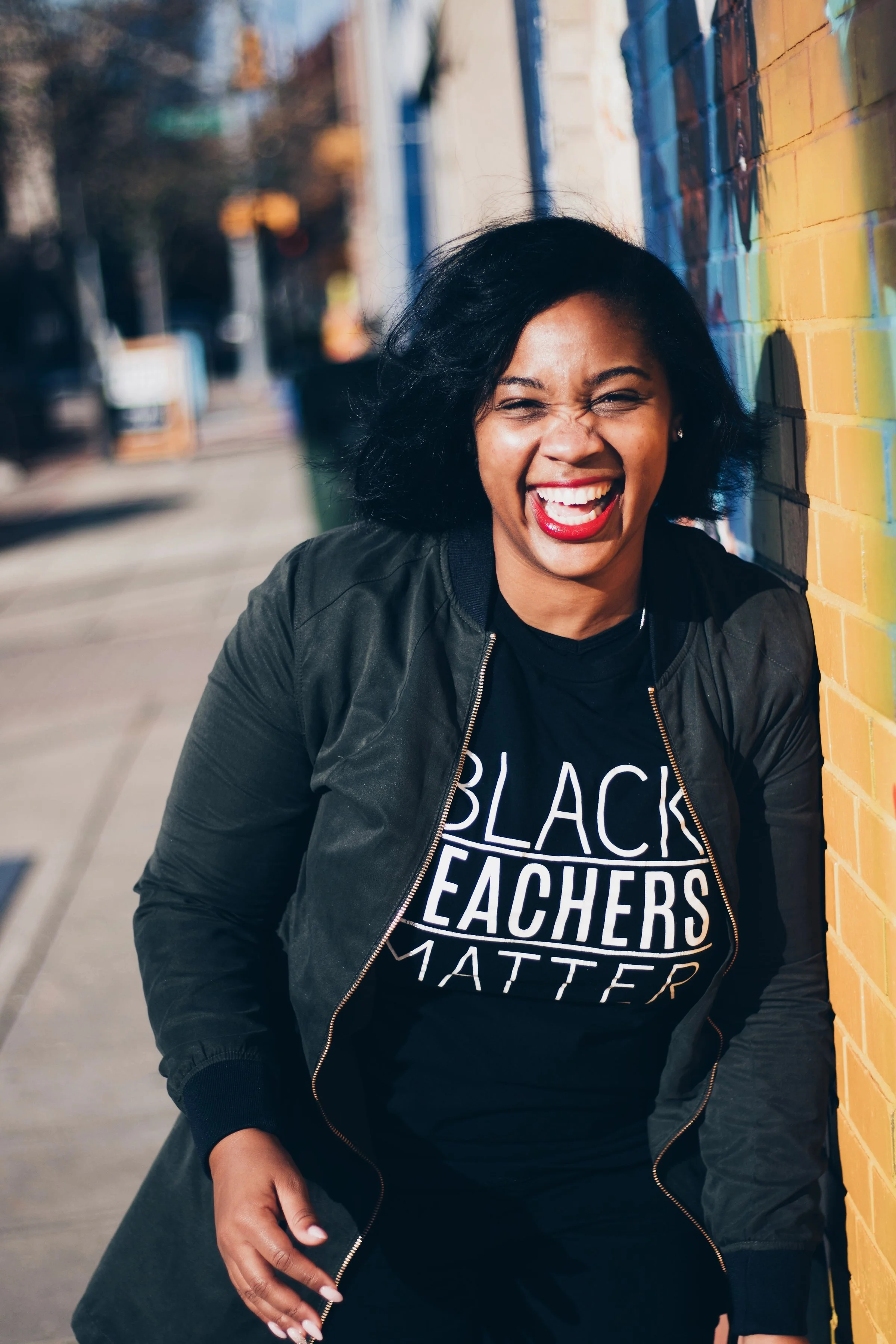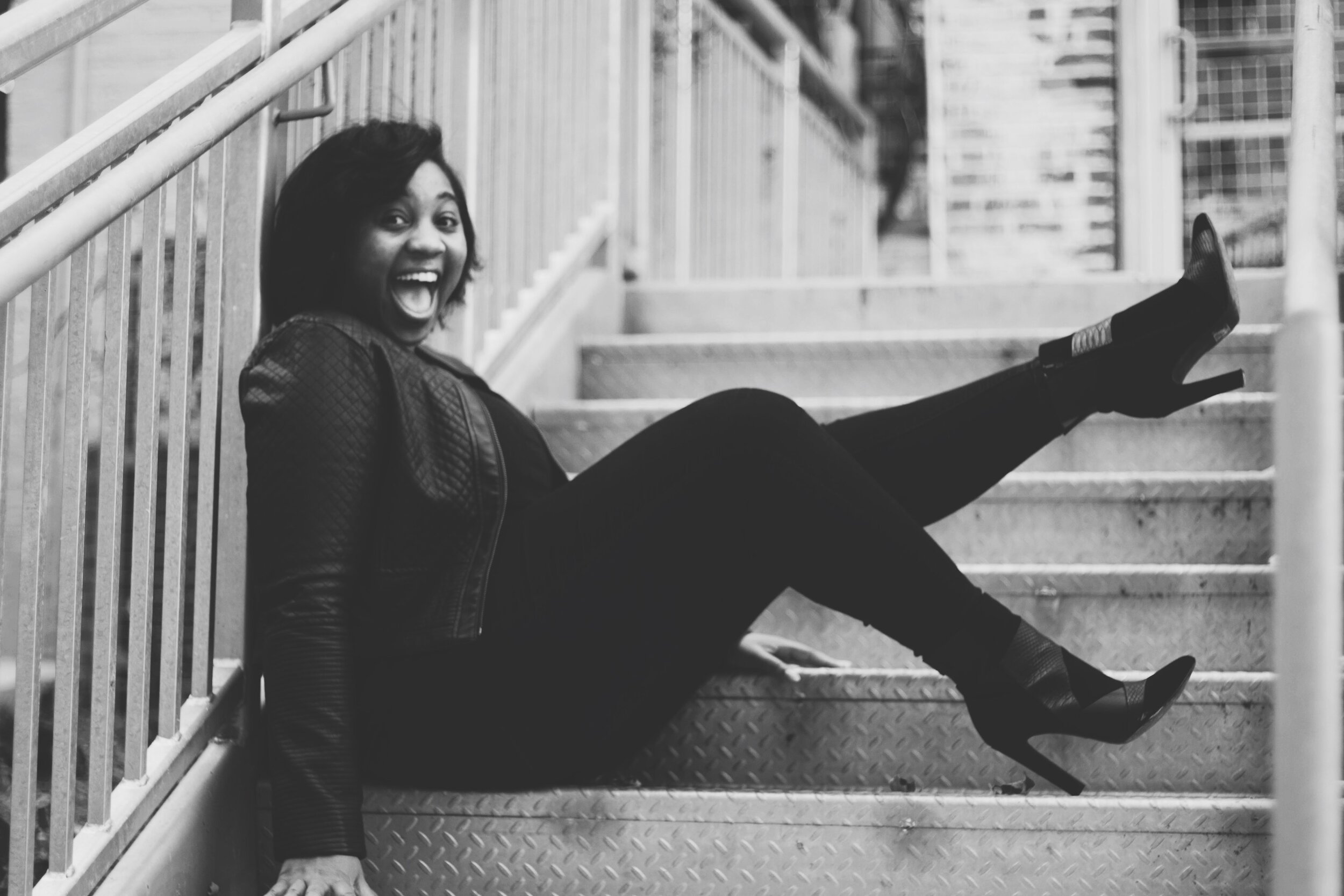Portia Newman, Educator & Doctoral Student
Portia! I’m so glad you’re talking with me. Can you share what you are doing right now?
I’m a full time student, getting my PhD in education leadership, policy and justice. I’m also working in the graduate school working on professional development and mentorship programs. I also started an education consulting business on the side. All of that, and I’m also really into wine and decided I want to be a sommelier, so in my free time I study wine. My goal is to host tastings where we also hold critical conversations about race and equity.
Wow, that’s a lot! Let’s start with the consulting business. Tell me more about that.
I started a year ago to focus on racial equity work in order to revolutionize education for kids. It’s fairly new and I haven’t told too many people about it. I’ve had about 5-6 clients in the last year. I conduct DEI (diversity, equity, and inclusion) trainings, lead DEI workshops, support organizations—primarily schools and nonprofits—in strategic planning. I typically get contracts by word of mouth, and I’m part of a hub of diversity trainers, so I also connect with clients through that group. I just finished a proposal for a small teacher collective doing talent acquisition work, and I’m constantly writing for one of the organizations, doing education blog writing. Additionally, I’ve been working with an organization to develop an early introduction to DEI for small nonprofits who are new to or really early in their diversity efforts.
That’s incredible. When did you realize that you want to start your business?
About three and a half years into my last role at an education reform organization, I got to a place where I realized I’m actually really good at my job. I was one of two black people in a leadership role, which was humbling, but it sometimes felt frustrating. I had all these ideas about the direction of the work. At one point I told my colleagues that we could bring in additional revenue if we create a professional development program to train other organizations but that was met with opposition because they said this was something we didn’t have the capacity to do. But I knew it was a good idea. I said, “Um, are you sure? I’m pretty sure people need this service.” (laughs)
So a colleague of mine and I tried it out anyway. We found a client who hired us to build and facilitate a training for them. I was really proud because as I’d said it would, it worked. But I was annoyed because all of this work I’d put in was outside of the normal scope for my role. I did all of this additional work but my organization got paid instead of me. I could have that extra income!
After that I thought, I’m not going to keep giving you all my ideas. Which is why I started my business after leaving my last organization. And it’s been cool because it’s been an opportunity for me to hire the homies. (laughs) I have projects and they have a skillset and can fill in the needs for different scopes of work, and we can all get paid. Or they will call me to say I have this job I need to do, and I think you should step in and be a part of this. So it’s been great.
Let’s talk a bit more about your desire to be a sommelier. When did you realize you had this interest in wine, and how did you come to connect it to your professional work?
I feel like this was very organic. I use to have a supervisor, and when we went on work trips, after the day was done we would always go drink wine together. I realized, I actually really like wine. For some background, I grew up in a small town and wine wasn’t a thing unless it was a five-dollar moscato.
At present, there are a little over 100 sommeliers and fewer than five in the world who look like me. Only about 20 are women. We as people of color have a limited presence in this space. We’re growing the grapes, harvesting and processing them, having people buy our land from us to grow their grapes. So I started to do my research. I found that there are a number of Black- and brown-owned vineyards and wine companies—Brown Estates, Ceja Vineyards, the McBride sisters and Andre Mack. We’re starting to have more of an influence. Being a sommelier is how I’d like to be a part of that movement.
Also, wine is a way to build community and forge connections. So many Black people haven’t had access to different types of wines. And as a matter of access and inclusion we know that in graduate school, for instance, there are these mixers or events where wine knowledge would be beneficial, so a big part of my interest in learning more about wine is being able to educate my cousins and the homies so that when they’re in these different settings, they aren’t only familiar with the five-dollar wines. (laughs)
I want to take a step back. Sometimes we look back and in retrospect, we are able to identify moments that are so clearly connected to where we are today. What do you feel are those circumstances or those moments for you?
Being from Wilson, North Carolina. It’s absolutely who I am. Born, raised—everything about how I was brought up is connected to Wilson. So I would say the first big moment is just being shaped by where I call home.
I also credit going to UNC-Chapel Hill for college. It changed my life. I don’t think in high school, I realized my own potential. I knew I was going to go to college, but when I was applying to schools, I just kind of applied to Chapel Hill because I saw the people in my class doing it. But it ended up changing everything about how I understand the world.
I often joke that I’m “first-generation everything.” I was the first to go to college, to get a master’s degree, to pursue a PhD. Just first at so many things. When I went to UNC, there were so many people unlike anyone I had ever met before, and there were so many things I didn’t even know about. I thought the only way to be great was to be a doctor, so that’s what I was going to do, and I failed chemistry (laughs).
So I talked to the dean, Dean Harold Woodard. He said, “You love kids. You should be a teacher.” I was like, “Um, no, that’s not the move.” (laughs) He told me not to come back to his office until I actually thought about it. And I did! I thought about it, and it started to feel right to me. I’m so glad I chose to be an educator. It has afforded me so many opportunities. To lead, to connect, to serve. It’s something I never would have considered as a child. It gives me a personal connection to the work that I do. I already know that I’m a lifelong educator. Seriously, I don’t get tired. I mean, I do physically, but every day after all these years I still wake up and I’m excited. I’m always thinking, OK, what else can I do? How can I make things better for young people?
That’s beautiful.
You know, my grandfather is 91-years-old. He has very little formal education. He can’t read a book. I would be foolish not to take advantage of the opportunities that come my way—if not for me, for him.
Do you remember those hats? The “#1 Grandad” hats? I remember my mom got one of those for my grandfather and she would say, “Portia, you need to go read this to him.” I was young and just like “Mom. Really?” I didn’t realize until I was older that he actually couldn’t read it. This PhD is going to be for him.
I’ve considered the other degrees I’ve earned and the other things I’ve done to be for my cousins. They’re for my god-kids, whoever else’s kids I claim. I want them to know they can be educated, drink wine and do whatever they can imagine. I want them to see that they can be the first to do something, until eventually someone comes and does it with you, and another, and another. Until there is a world where we are everywhere, and there isn’t anything holding us back from opportunities. We’re just propelled forward.
Please share this post with a friend, and follow us at @BlackWomenWorkIG!


